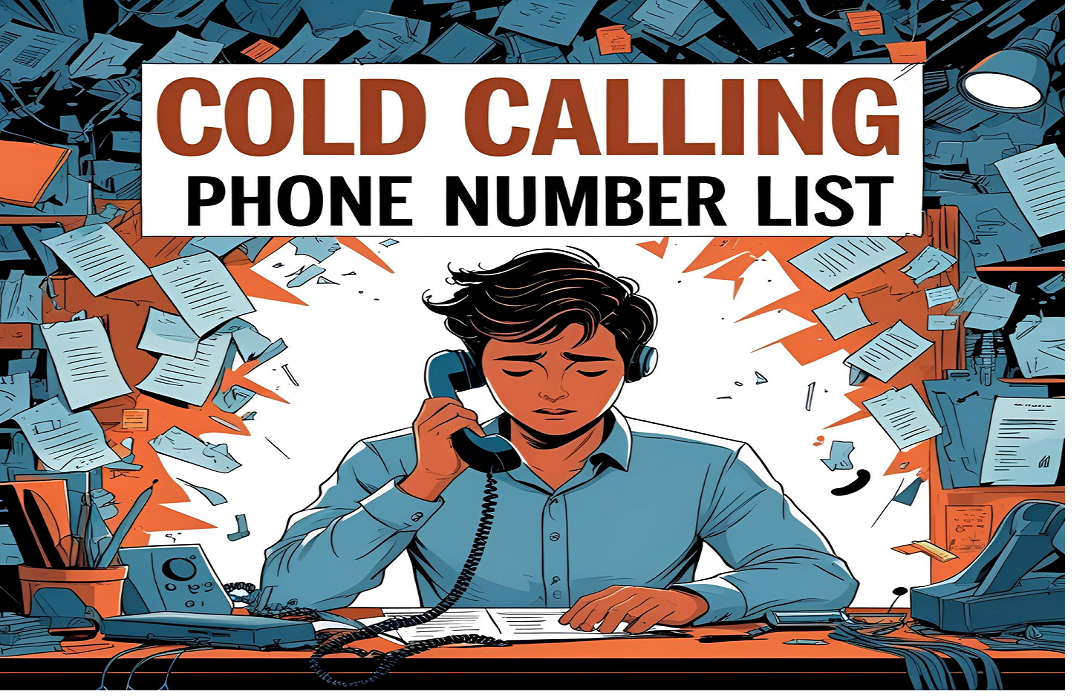Have you ever wondered how some people get your phone number to sell you things? It's like a puzzle, right? They call you, even if you don't know them. This is called "cold calling." And to do it, they need something very important: a list of phone numbers. Think of it like a treasure map, but instead of gold, it leads to people's phones!
This article will help you understand these special phone number lists. We will explore what they are and why they are used. We will also learn how people get them. And, most importantly, we will talk about being safe. It is important to remember that cold calling has rules.
These lists are not just random numbers. They are put together very carefully. Businesses use them to find new customers. It helps them tell more people about their products. So, it's a tool for growing a business. Many people wonder if this is always a good idea.
What are Cold Calling Phone Number Lists?
Imagine a big book filled with list to data phone numbers. Each number belongs to someone. These books are like "cold calling phone number lists." They are special collections of phone numbers. Businesses use them to call people they don't know yet. The goal is often to sell something.
These lists are not just for any person. They are for people who might be interested. For example, a company selling pet food would want numbers of pet owners. They wouldn't want numbers of people who don't have pets. So, these lists are often very specific.
They can be very simple. Or they can be very complex. Some lists might just have a name and a number. Others might have much more information. This extra information helps the caller. It makes their job a bit easier.
Why Do Businesses Use These Lists?
Businesses need new customers to grow. It's like a plant needing water. Without water, it won't get bigger. Without new customers, a business can get stuck. Cold calling is one way to find those new customers. It's like casting a wide net.

By calling many people, they hope to find some who are interested. It's a numbers game, really. The more calls they make, the more chances they have. They want to tell as many people as possible. This helps them spread the word.
Sometimes, cold calling can be tough. People don't always like getting calls from strangers. However, for some businesses, it works well. It can be a very direct way to talk to potential customers. It helps them introduce new ideas.
Example Scenario
Imagine a company selling a new type of super-fast internet. They need to find people who want faster internet. They might get a list of people in certain neighborhoods. These people might not know about the new internet yet. Cold calling helps them share the news.
Another example is a charity. They might call people to ask for donations. They need to reach many kind-hearted people. Phone lists can help them do this quickly. It's about reaching out to a lot of people.
How Do These Lists Get Made?
This is where it gets interesting. How do companies get these phone numbers? There are a few ways. Some ways are better than others. It's important to understand the differences.
One way is through public information. Phone books used to be common. Now, much information is online. Businesses might find numbers this way. This kind of information is generally open to everyone. It's like finding a name in a public directory.
Another way is through buying lists. Yes, you can actually buy lists of phone numbers! There are companies that collect this information. They then sell it to other businesses. These lists can be about many different things. For example, lists of new parents. Or lists of people who own certain cars.
Sometimes, people give their numbers directly. When you fill out a form online, you might share your number. Or when you sign up for something. This means you have given permission. This is different from numbers found in public. It's called an "opt-in" list.
Are These Lists Always Good?
Not all lists are created equal. Some lists might have old numbers. Some might have numbers that don't belong to the right people. This can be a problem. It wastes time for the caller. It can also be annoying for the person getting the call.
It's like getting a recipe with missing ingredients. The meal won't turn out right. A bad phone list means calls won't reach the right people. Businesses try to get the best lists. They want accurate information.
There are also rules about these lists. Laws protect people's privacy. Businesses must follow these laws. They can't just call anyone they want. There are "Do Not Call" lists. If your number is on this list, they shouldn't call you.
Staying Safe from Unwanted Calls
It can be annoying to get unwanted calls. Luckily, there are ways to protect yourself. One important way is the "Do Not Call" registry. This is a special list. If your number is on it, telemarketers shouldn't call you. It's like putting a "do not disturb" sign on your phone.
You can usually sign up for this online. It's a simple step to take. It helps reduce unwanted calls. Also, be careful where you share your phone number. Think twice before giving it out. Especially if you don't trust the website or company.
If you get a call you don't want, you can hang up. You don't have to listen. You can also block numbers. Your phone usually has a way to do this. It's like telling an unwanted visitor to leave.